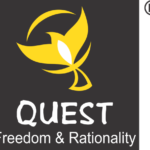Quest
One of QUEST’s flagship programmes is Palavee, for 3- to 6-year-old children in government-run anganwadis. In the Palavee programme, the organisation works as a knowledge partner for the government, providing training to anganwadi teachers and helpers, and creating educational material, in order to turn anganwadis into vibrant spaces for early childhood learning.
QUEST also runs the Anupad programme to help middle-school children who are trailing behind their peers in literacy and maths. Its Goshtarang active library programme uses theatrical performances to encourage a culture of reading among schoolchildren, while the Shikshak programme involves training teachers to deepen their knowledge of their subjects and their understanding of effective teaching methods.
So far, QUEST’s programmes have reached over 2.6 lakh children and 11,000 parents in more than 5,700 schools and anganwadis.
The project supported by MFE:
ECE Palavee Programme
In this three-year project, QUEST aims to bring its successful Palavee programme for early childhood education (ECE) to 293 anganwadis in the Teosa block of Amravati district and the Ner block of Yavatmal district. It has been undertaken on the invitation of the Government of Maharashtra, which has rolled out its own curriculum, called Aakar, for the ECE component of anganwadis’ work. Through this project, QUEST will bring its Palavee experience and expertise to help develop the Aakar curriculum, which the state government will then implement across Maharashtra.
QUEST aims to directly impact 8,451 children between ages 3 and 6 through this project, by improving their cognition and school readiness. It also aims to indirectly impact 8,150 children between the ages 0 to 3. This will be done through the six steps of the Palavee programme: periodic training of anganwadi workers, training the helpers who assist them, capacity building of anganwadi supervisors, orientation of the higher office bearers overseeing anganwadis, and providing high-quality, low-cost educational material for the anganwadi workers to teach with.
In the first phase of the project, the Palavee team will set up 30 to 40 “model anganwadis” across the project area, and conduct six training workshops for two days each with the workers and supervisors of these anganwadis. They will be trained in understanding child development and the appropriate use of the educational material. In the second phase, these teams will then train all other anganwadi workers and helpers in the project area.
QUEST will provide onsite support to the anganwadi workers, helpers and supervisors for the full three years of the project. The success of the project will be evaluated by conducting baseline, midline and endline tests on samples of beneficiary children, and also by the adoption of the Palavee programme by the state government into its Aakar curriculum.


